Reid Hastie - Rational Choice in an Uncertain World: The Psychology of Judgment and Decision Making
Here you can read online Reid Hastie - Rational Choice in an Uncertain World: The Psychology of Judgment and Decision Making full text of the book (entire story) in english for free. Download pdf and epub, get meaning, cover and reviews about this ebook. year: 2010, publisher: SAGE, genre: Romance novel. Description of the work, (preface) as well as reviews are available. Best literature library LitArk.com created for fans of good reading and offers a wide selection of genres:
Romance novel
Science fiction
Adventure
Detective
Science
History
Home and family
Prose
Art
Politics
Computer
Non-fiction
Religion
Business
Children
Humor
Choose a favorite category and find really read worthwhile books. Enjoy immersion in the world of imagination, feel the emotions of the characters or learn something new for yourself, make an fascinating discovery.
- Book:Rational Choice in an Uncertain World: The Psychology of Judgment and Decision Making
- Author:
- Publisher:SAGE
- Genre:
- Year:2010
- Rating:4 / 5
- Favourites:Add to favourites
- Your mark:
Rational Choice in an Uncertain World: The Psychology of Judgment and Decision Making: summary, description and annotation
We offer to read an annotation, description, summary or preface (depends on what the author of the book "Rational Choice in an Uncertain World: The Psychology of Judgment and Decision Making" wrote himself). If you haven't found the necessary information about the book — write in the comments, we will try to find it.
The authors are highly respected as leading figures in the field of judgment and decision making. There are many existing books on topics related to judgment and decision making, but this book makes a unique contribution to this field because of its systematic and scholarly approach, and its breadth of coverage.
Robert Goldstone, Indiana University
Reid Hastie and Robyn Dawes are two of the most eminent researchers in the field. I know these authors to be excellent writers and I have no doubt that their writing style will be suitable for my students.
William Goldstein, University of Chicago
In the new edition of this award-winning text, renowned authors Reid Hastie and Robyn Dawes compare and contrast the basic principles of rationality with actual behavior in making decisions. This book explores theories and research findings from the field of judgment and decision making in a non-technical manner, using anecdotes as a teaching device. Intended as an introductory textbook for advanced undergraduate and graduate students, the material not only is of scholarly interest but is practical as well.
New to This Edition
- Chapter introductions, conclusions, and cross-references between chapters make the text more student friendly
- An abundance of examples from areas such as finance, medicine, law, and engineering anchor concepts to the real world
- Increased consideration of descriptive, psychological models of decision making augment the original emphasis on normative, rational, Expected Utility Theory models, bring the book up to date
- Balance among the three major approaches to judgment and decision making: cognitive psychological analyses of mental processes and heuristics, descriptive algebraic models of judgment and decision processes, and rational models of decision making
Reid Hastie: author's other books
Who wrote Rational Choice in an Uncertain World: The Psychology of Judgment and Decision Making? Find out the surname, the name of the author of the book and a list of all author's works by series.

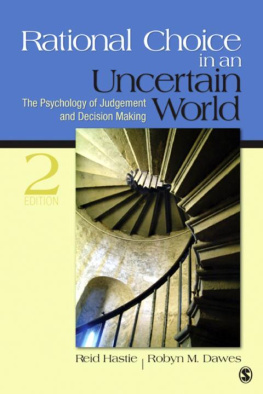
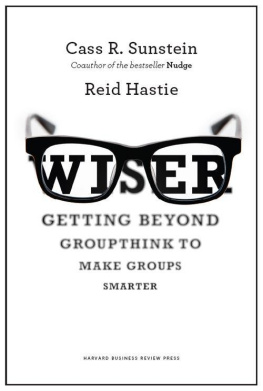
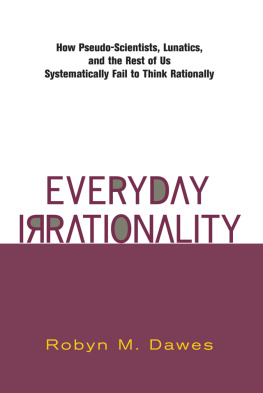

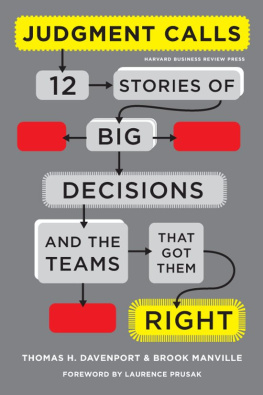

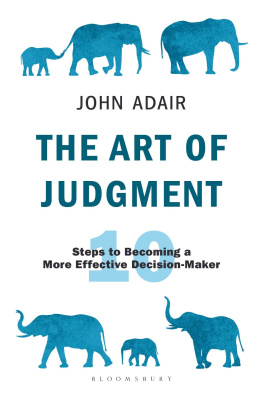
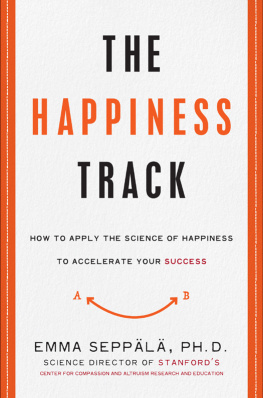
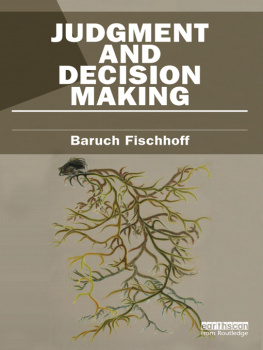



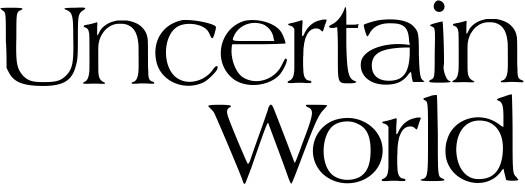







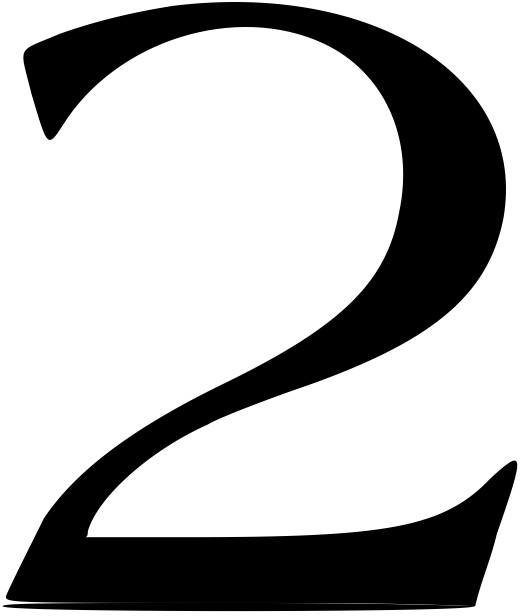





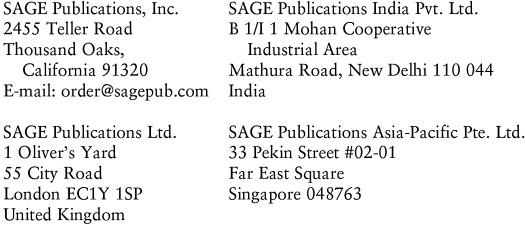
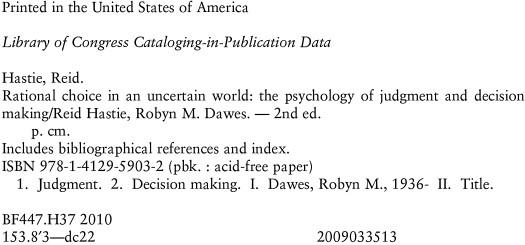
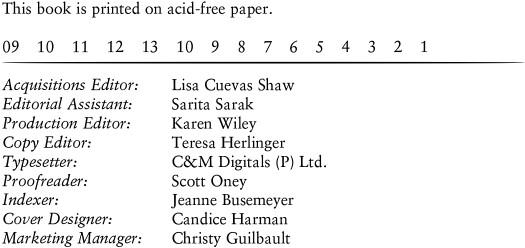


 n this book, we present basic theories and research findings from the field .of judgment and decision making in as nontechnical a way as possible. Students have liked this approach in the classroom, and we hope that readers of this book will like it, too. We have been teaching this material for more than 30 years to students at Carnegie Mellon University, University of Chicago, University of Colorado, University of Oregon, Northwestern University, and Harvard University. We have found that these courses are more popular with students than any of the other topics that we teach.
n this book, we present basic theories and research findings from the field .of judgment and decision making in as nontechnical a way as possible. Students have liked this approach in the classroom, and we hope that readers of this book will like it, too. We have been teaching this material for more than 30 years to students at Carnegie Mellon University, University of Chicago, University of Colorado, University of Oregon, Northwestern University, and Harvard University. We have found that these courses are more popular with students than any of the other topics that we teach.